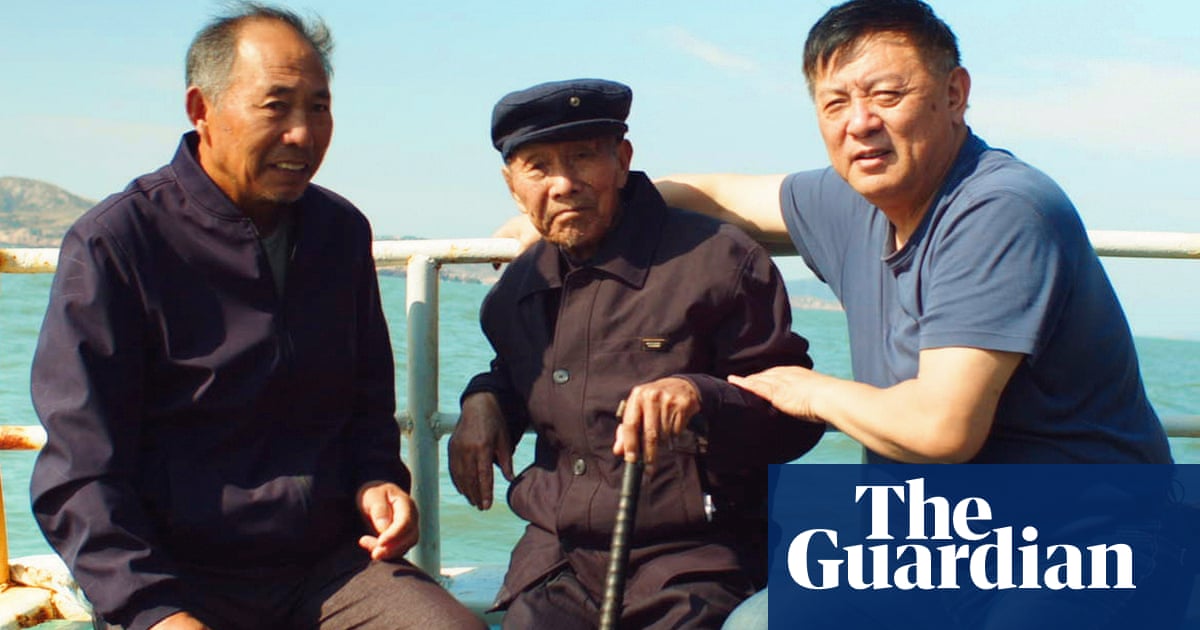A lesser-known tragedy from World War II is the focus of a documentary that has unexpectedly become popular in China and has been chosen by the country for two Academy Awards – even though it has been disqualified from one of the categories.
It was revealed on Monday that The Sinking of the Lisbon Maru, which was China’s selection for the best international feature prize at the Oscars, had been deemed ineligible. The rules of the competition state that a film in that category must have “a predominantly (more than 50%) non-English dialogue track”.
“I was unaware of the rules,” explains Fang Li, the director, who says the film was chosen by China’s official committee without his knowledge. Fang mentions that the definition of “dialogue” was unclear, and by some definitions, his film, which includes interviews in China, the UK, and Japan, could still be considered to have 50% non-English dialogue.
An advert in the Guardian in July 2018 calling for relatives of the PoWs to get in touch with the director.
The Sinking of the Lisbon Maru recounts the story of a Japanese ship that transported 1,816 British prisoners of war from Hong Kong to Japan during World War II. In October 1942, while sailing through the East China Sea, the unmarked vessel was torpedoed by the US navy. A tragic event unfolded as hundreds of prisoners drowned or were shot by Japanese troops while attempting to escape. However, over 300 individuals were rescued by Chinese fishermen who spotted the smoke and debris from an archipelago on China’s east coast (most were later recaptured by the Japanese).
Fang, a former businessman turned filmmaker, first heard about the incident from a fisherman on Dongji island, part of the Zhoushan archipelago where the rescue mission took place over 80 years ago. Fang initially set out to locate the ship’s remains, but the project evolved into a mission to share the stories of those aboard. “I wanted all those 828 men to not be forgotten,” says Fang, the film’s director, producer, and host, referring to the individuals who did not survive.
With many of the individuals involved in the incident now deceased, piecing together the story was a challenging task. At one point, Fang sought the assistance of a private investigator in Tokyo to locate the children of Kyoda Shigeru, the captain of the Lisbon Maru, who was convicted of war crimes in 1947 for his role in the incident. PoWs had been forced into the ship’s hold as it sank, resulting in many deaths from suffocation and drowning. Shigeru’s children, now elderly, mentioned that their father never spoke of the incident. “Perhaps he was filled with remorse at the thought of so many deaths,” says Shigeru’s son.
A complicated jigsaw … Fang Li speaks to a survivor. Photograph: Emei Film Group
To locate the British survivors, Fang adopted a different approach. In 2018, he placed full-page advertisements in British newspapers – including the Guardian and the Observer – appealing for any surviving PoWs or their relatives to reach out. Fang received over 380 responses.
Despite the film featuring “shocking Japanese violence,” Fang emphasizes that it primarily focuses on “touching family stories.” Yet, nearly eight decades after the war, the countries involved in the Lisbon Maru tragedy – the US, the UK, China, and Japan – still do not have entirely smooth relationships. Recent months have seen a rise in anti-Japanese sentiments in China, including two separate stabbing incidents. In one of the attacks, a 10-year-old Japanese boy in the southern Chinese city of Shenzhen was fatally stabbed on the anniversary of Japan’s invasion of China in 1931 (China’s foreign minister warned Japan against politicizing or exaggerating the issue).
When asked if he is concerned that the documentary, which has a 9.3/10 rating on Douban, a Chinese review website, might fuel anti-Japanese sentiment, Fang expresses his hope that it will not. “This is not the purpose or value of the film. The value of the film lies in the human stories,” he explains. He aims to “fill in the blanks” of history.
Filling in the blanks of history … Fang Li talks with a survivor of the disaster in The Sinking of the Lisbon Maru. Photograph: Emei Film Group
Nevertheless, the film, which is seeking a distributor in the UK, has garnered significant support from Chinese authorities. Despite its disqualification from the best international feature film category at the Oscars, it remains China’s choice for the best documentary feature.
In 2022, Xi Jinping, China’s president, penned a letter to the daughter of Dennis Morley, one of the last surviving POWs from the Lisbon Maru. The letter was delivered to her home in Gloucestershire by the Chinese ambassador to the UK. In the letter, Xi described the Lisbon Maru incident as “a historical episode symbolizing the profound friendship between the people of our two countries,” as per a statement from the Chinese embassy.
Fang maintains that The Sinking of the Lisbon Maru is a labor of love and that he has not actively sought official support. “People are not related to politics,” he states. “We want all the soldiers, [or] their souls, to go home.”
